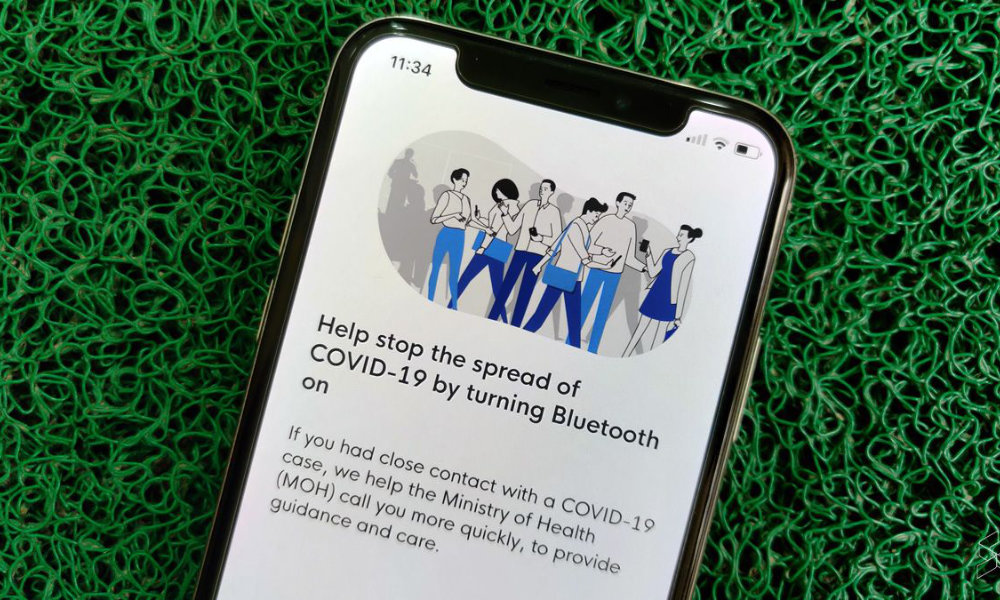Singapore Just Made Its COVID-19 Exposure Tracking App Freely Available to Developers Worldwide
 Credit: iPhone in Canada
Credit: iPhone in Canada
Toggle Dark Mode
Medical experts have generally agreed that one of the best ways to deal with the current novel coronavirus pandemic is to detect those who have been exposed as early as possible so that they can be properly informed and isolated. In fact, it’s practices like widespread testing and tracking that have resulted in countries like South Korea, Taiwan, and Singapore getting a much better handle on the pandemic.
Now the Singapore government is offering up the technology used to create a key app behind its pandemic management strategy to help out the rest of the world.
The app, which is called TraceTogether, uses Bluetooth signals between participating mobile devices — that is, those that have the app installed — to help identify those that they’ve been in close contact with.
As reported by iPhone in Canada, the Minister-in-charge of Singapore’s Smart Nation Initiative recently announced in a Facebook post that the government-developed app will be open-sourced, allowing any developer or government agency in the world to use the technology to get a head start on building similar apps for their own countries’ needs.
How It Works
The key strategy behind the app is to allow users and medical professionals to keep track of who a person has come into contact with so that when a patient is diagnosed with COVID-19, they can quickly identify anybody else who may be likely to also have the virus.
What’s particularly clever, however, is that TraceTogether does this by using as little personal information as possible and randomizing IDs. When Singaporeans download the app and sign in, they need only supply their mobile phone number and consent to it being “stored in a secure registry.” The app then attaches a random ID to each user’s phone number, and uses Bluetooth to detect other users who come within a few meters of each other, recording random IDs internally to protect people’s privacy.
This means that Singaporeans won’t have to rely on their memories to recall whether they’ve had contact with somebody who later tests positive for the virus.
These random IDs are collected and stored locally on each user’s iPhone, and aren’t sent to any cloud servers without the user’s consent. However, when a user of the app tests positive for COVID-19, the country’s Ministry of Health has them send the logs from the app to the government, which can look up these random IDs and get the phone numbers of everybody that they’ve come into contact with. Others can then be notified that they’ve come into contact with somebody who has tested positive for COVID-19, prompting them to either self-isolate or get tested if possible.
In a public Facebook post, Jason Bay, the Singaporean government’s lead developer for the app, shared some additional details on how the app works, noting that one of the key benefits is that since many people don’t even know they’ve been exposed to the novel coronavirus for possibly days or even weeks, it will help to identify those who may be carriers of the virus long before symptoms develop, encouraging them to self-quarantine in order to avoid infecting others.
By alerting you sooner, you can avoid inadvertently transmitting the virus to those around you, including your loved ones and family.
Jason Bay, Government Technology Agency of Singapore
A spokesperson for the Smart Nation and Digital Government Office of Singapore said that other countries have already expressed interest in adopting Singapore’s technology, and that “Our engineering team is working around the clock to prepare the codebase for open source adoption.”
That said, Bay is careful to make it clear that TraceTogether is not a “silver bullet” but merely an additional tool to help medical staff and government officials control the spread of the novel coronavirus. Further, it will still be up to other governments to adopt the open source code being shared by Singapore, not to mention convincing people to actually install and use the app in the midst of ongoing concerns about privacy and corporate and government surveillance.






